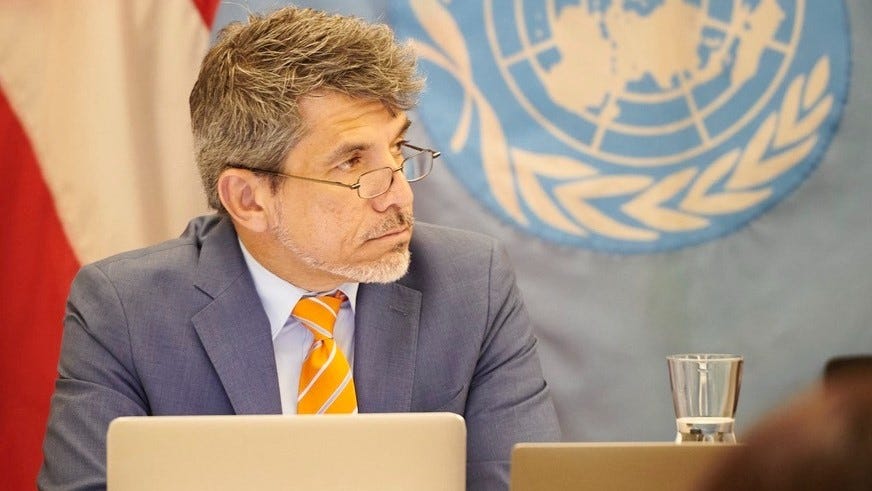Victor Madrigal-Borloz and His Gender-Identity Love Affair
Have concerns about self-ID? Victor doesn’t want to hear them
Earlier this month, Victor Madrigal-Borloz wrapped up a tour of the United Kingdom, which ran from April 24 to May 5. Madrigal-Borloz is the United Nations Independent Expert on protection against violence and discrimination based on sexual orientation and gender identity (UN IE SOGI), and the purpose of the visit, according to his end of mission statement, was ostensibly to “gather evidence on the manner in which discrimination and violence manifest and/or are perpetrated against lesbian, gay, bisexual, and trans and gender diverse persons in the UK.”
Of course, all Madrigal-Borloz actually seems to care about are people who have “gender identities.”
I have written about the current UN IE SOGI on several occasions, starting with when he urged the Scottish Parliament to pass the Gender Recognition Reform bill and allow gender self-ID. I have also discussed his role as a signatory of the Yogyakarta Principles, his desire to erase sex in law entirely…




